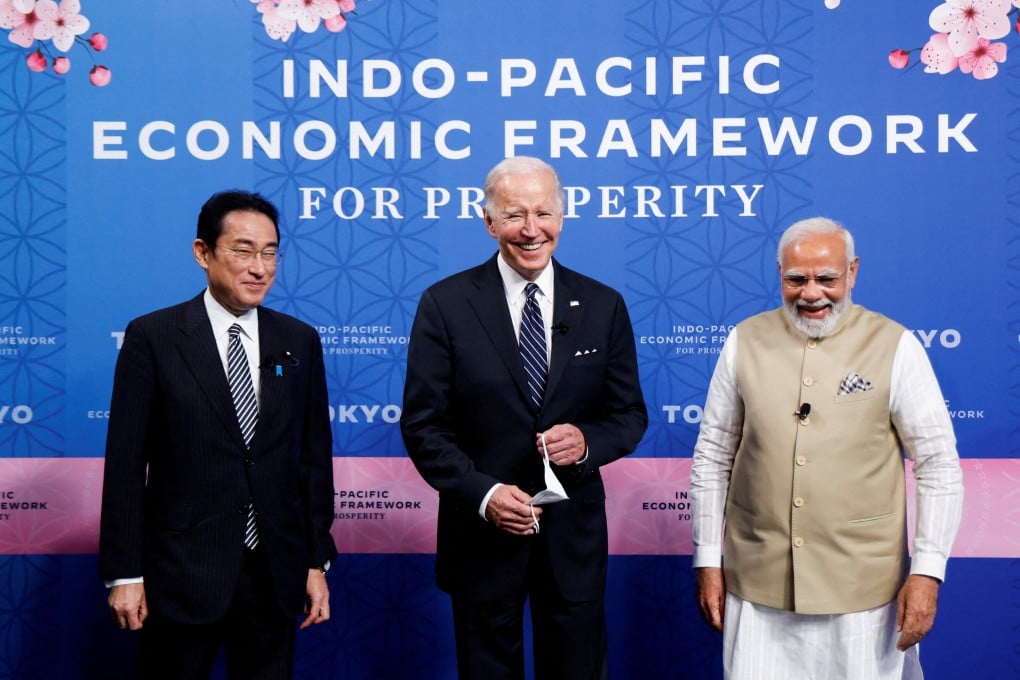Advertisement
Biden’s Indo-Pacific Economic Framework unlikely to drive Japanese and South Korean businesses from China, analysts say
- Under the new deal, signing members, including Japan, South Korea and others, will be able to form supply chains that exclude China
- While Tokyo and Seoul have shown willingness to cooperate with Washington, private businesses are unlikely to give up on the Chinese market, analysts say
Reading Time:3 minutes
Why you can trust SCMP
12

The US-led Indo-Pacific Economic Framework (IPEF) marks the latest attempt by Washington to counter China’s rising influence in global supply chains, but strong incentives remain for businesses in South Korea and Japan to maintain ties with the huge Chinese market, according to analysts.
The official launch of the IPEF during US President Joe Biden’s first trip to Asia has triggered concerns in Beijing that the agreement – covering supply chains, digital trade, clean energy and anti-corruption efforts – may undercut China’s central role in global trade.
Under the deal, signing members, including Australia, India, Indonesia, Japan, South Korea, Malaysia, the Philippines, Singapore, Thailand, Vietnam and the US, will be able to form supply chains that exclude China in industries ranging from design to manufacturing.
Advertisement
The initiative “showcases Washington’s strategic intent of intensifying geopolitical and economic competition against China” amid the Covid-19 pandemic and Russia’s invasion of Ukraine, Zhao Minghao, an international relations expert with Fudan University, wrote in a recent article.

On Friday, Biden visited Samsung Electronics, accompanied by South Korean President Yoon Suk-yeol. The two leaders vowed to work closer on semiconductors, autonomous robotics and artificial intelligence – areas where China is working hard to achieve self-sufficiency or playing catchup.
Advertisement
Advertisement
Select Voice
Choose your listening speed
Get through articles 2x faster
1.25x
250 WPM
Slow
Average
Fast
1.25x